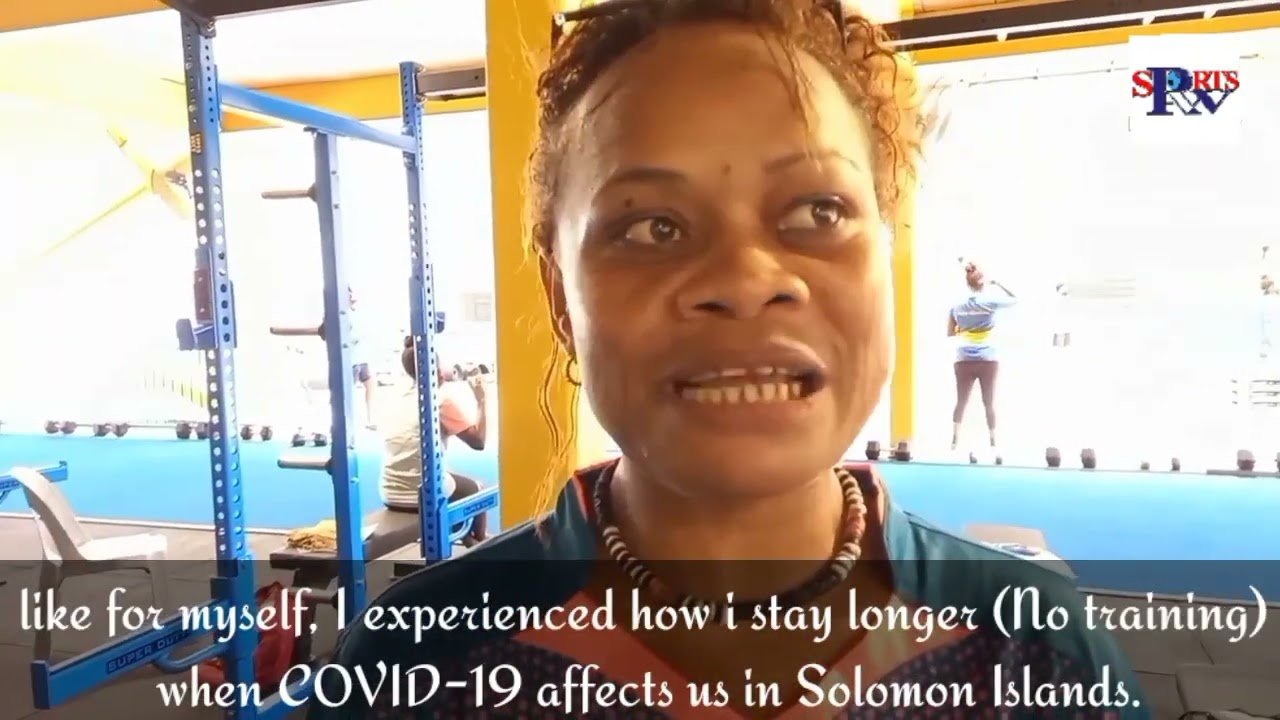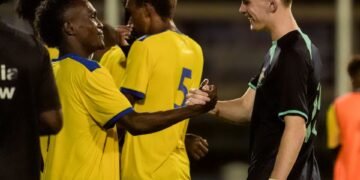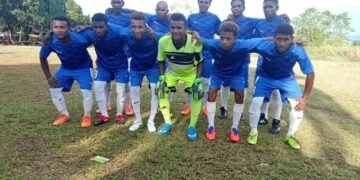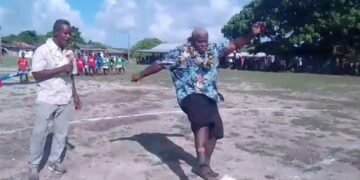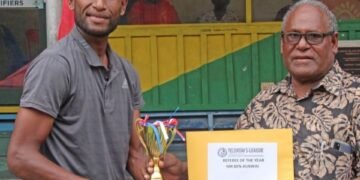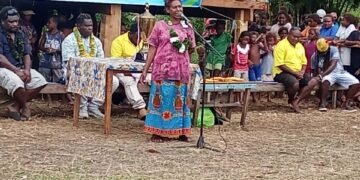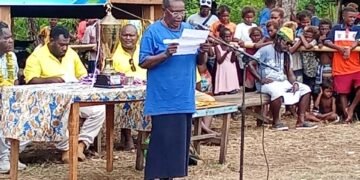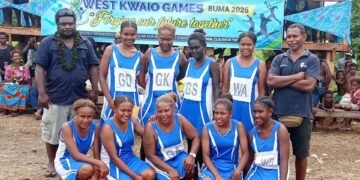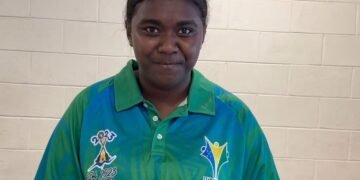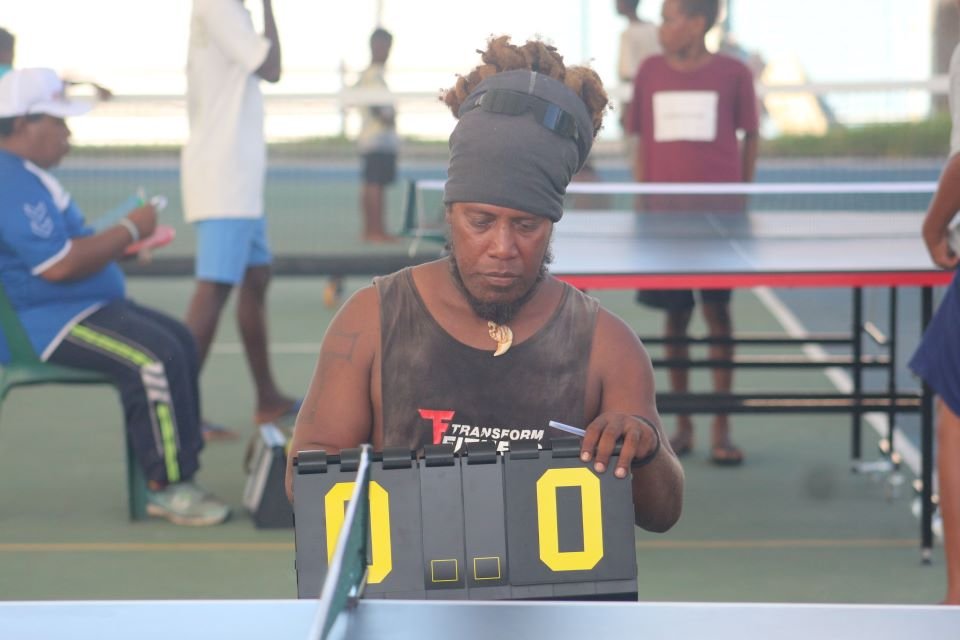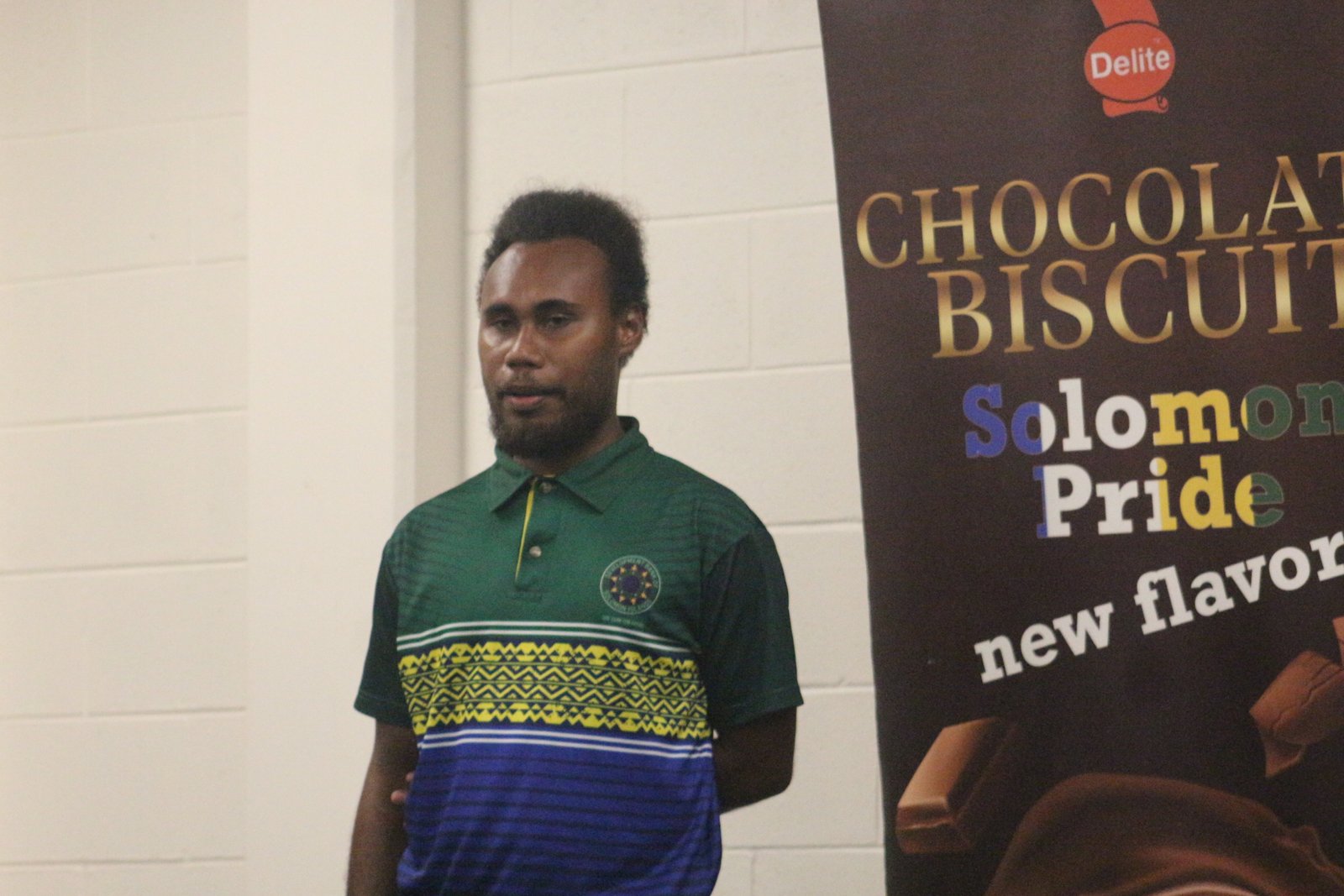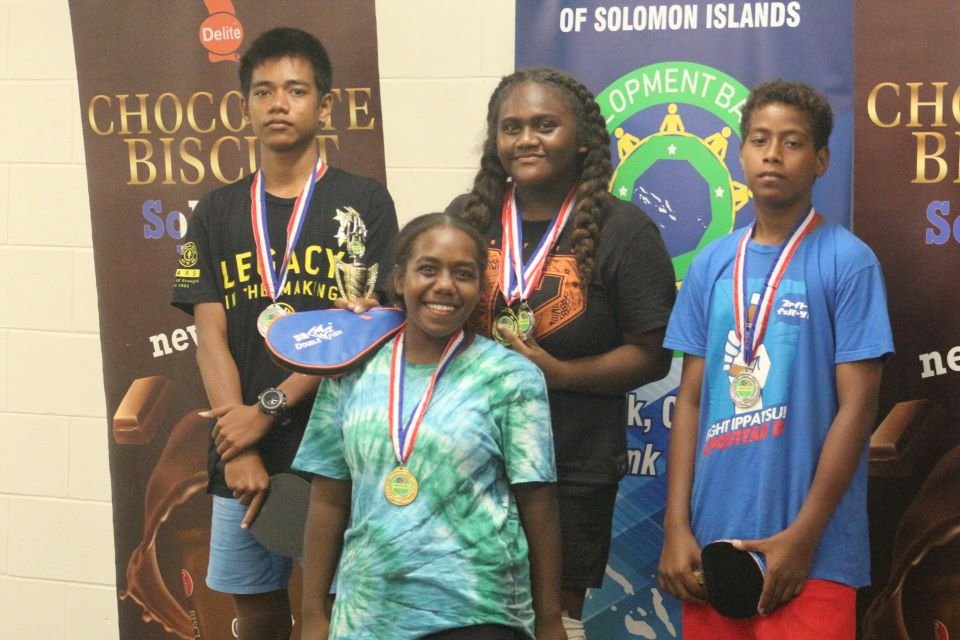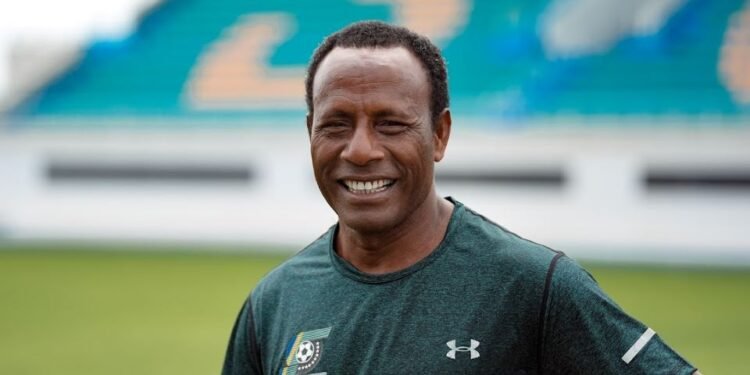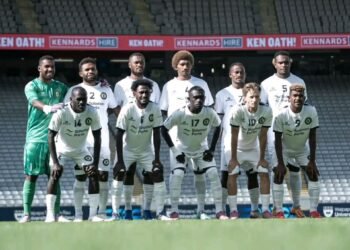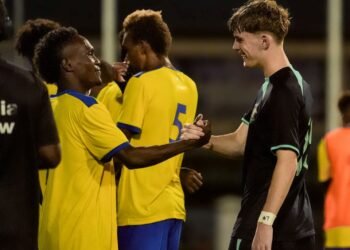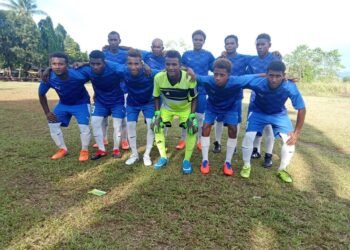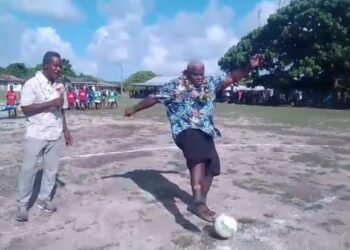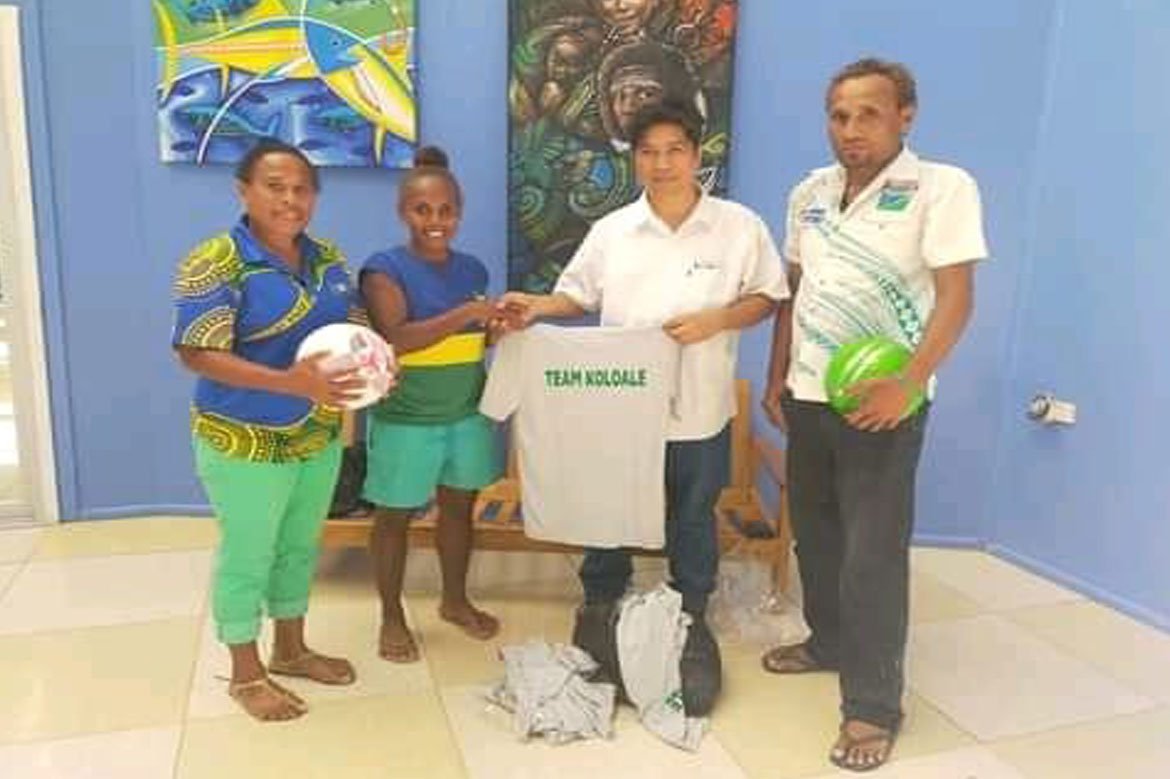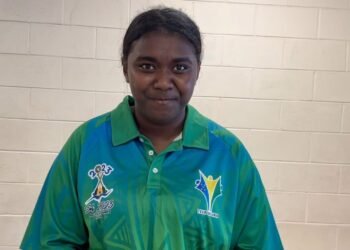BY JOY OFASIA
Coaching in another country is never easy, but for Solomon Islands football legend Batram Suri, it has been one of the most rewarding experiences of his career.
The current head coach of Au Bon Marche Galaxy FC in Vanuatu, and former Solomon Islands women’s national team coach, says his time coaching abroad has taught him lessons far beyond football.
For Batram Suri, coaching abroad has been more than just a job—it’s been a journey of growth, understanding, and connection through the beautiful game.
In 2020, Suri took charge of Galaxy FC, one of Vanuatu’s top football clubs. Speaking in an exclusive online interview with RAW SPORTS, he reflected on his experience.
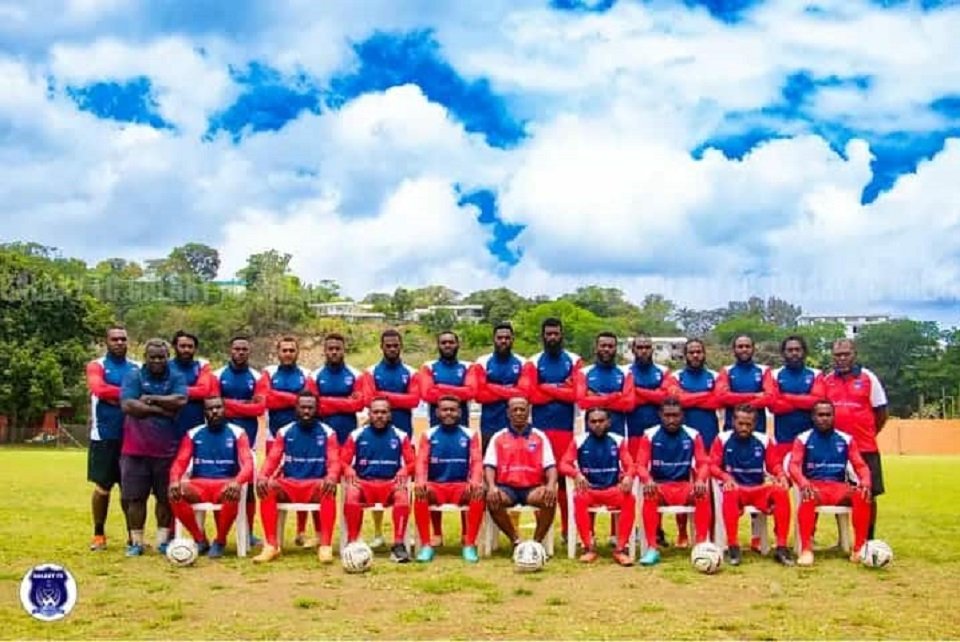
“My experience coaching a different team in another country was one of the most rewarding of my career,” Coach Suri said. “I had the opportunity to spend a season abroad, including playing in the OFC Champions League in Fiji with Galaxy FC. The journey taught me lessons that went far beyond the technical and tactical aspects of football. It tested my adaptability, cultural awareness, and leadership.”
When Suri first arrived in Vanuatu, he was struck by how deeply football was part of everyday life—just like in the Solomon Islands.
“The players were deeply passionate,” he said. “Most of them worked full-time jobs or studied during the day, yet they came for training at lunchtime or in the evenings with so much energy and enthusiasm. That kind of commitment was both humbling and motivating. It reminded me that passion for the game is universal, no matter where you are.”
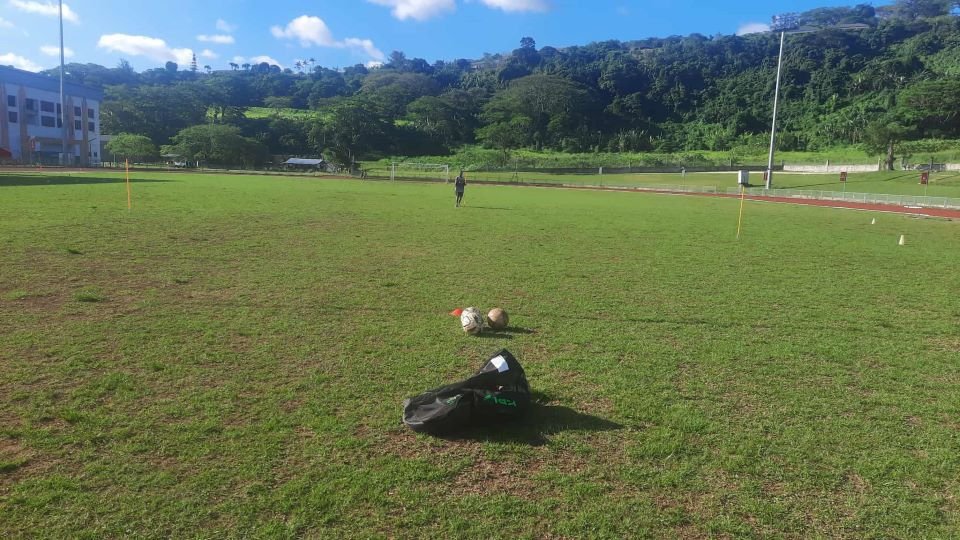
Suri explained that every country has its own football culture—how players train, communicate, and respond to feedback can be very different.
“There are differences in playing styles and football philosophy,” he explained. “For example, they played a 1-3-5-2 formation, which was totally different from the systems I was used to, like 1-4-2-3-1 or 1-4-3-3. So, I had to teach them the system I believed in and had used for many years.”
This was not Suri’s first experience in Vanuatu football. In 2010, he played for Amical FC and later coached former champions Ifira Black Bird FC. However, he said he always takes time to observe and learn when entering a new environment.
“It takes time to understand the local football culture, the values, and the players’ mentality before making changes,” Suri said. “I also had to adapt my communication style—sometimes adjusting my tone when things weren’t going my way—and match my teaching style to how players best receive feedback.”
He shared that blending his own methods with the local playing style helped him connect better with his players.
“I combined my coaching methods with the local style to respect their traditions while improving performance—the Solomon style and the Vanuatu style,” he said with a smile.
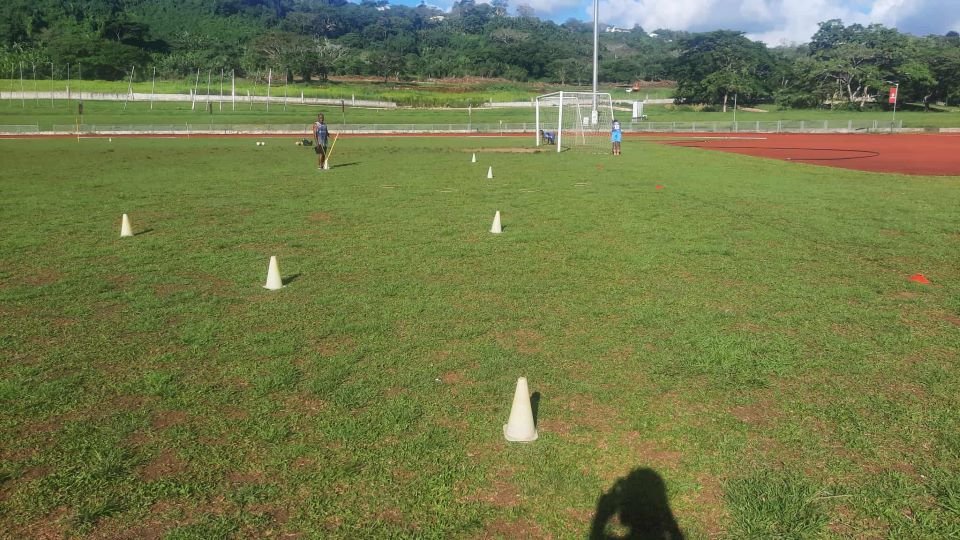
Collaboration with local staff was another key part of his approach.
“I always involved local staff and worked closely with my assistant coach and club management,” he said. “That way, my strategies fit the club’s culture and community values. We focused on teamwork, respect, and passion for the game—values that everyone could understand.”
Through his coaching experiences, Suri said he noticed clear differences in how players from various backgrounds approach learning, motivation, and competition.
“In some cultures, players prefer structured, coach-led instruction and value discipline and organisation,” he said. “In others, players thrive in more creative and flexible environments where learning happens through play and self-expression.”
Motivation also varies widely, he explained.
“For some players, pride in representing their community, club, or country is the strongest motivation,” he said. “For others, it’s more personal—they aim to reach higher levels of competition. I also noticed that some players focus more on teamwork and enjoyment, while others place greater emphasis on results and intensity.”
Understanding these differences, Suri said, helped him design training programs that respected each culture while still getting the best out of every player.
“It’s about finding balance,” he added. “You must respect their way of doing things but also guide them toward improvement. That’s how you build trust and teamwork.”
After years of coaching in the Solomon Islands and Vanuatu, Suri said the experience of working abroad has made him not just a better coach, but also a better person.
“Coaching abroad taught me patience, cultural sensitivity, and the importance of humility,” he said. “It reminded me that football is a universal language—one that brings people together, no matter where they come from.”
As he continues his term with Au Bon Marche Galaxy FC until 2026, Coach Suri remains focused on achieving results and building a winning culture within the team.
“My goal is to create a ‘win-win’ situation for everyone,” he said. “We want to perform well, make our fans proud, and fight for the championship. That’s the dream for all of us.”







